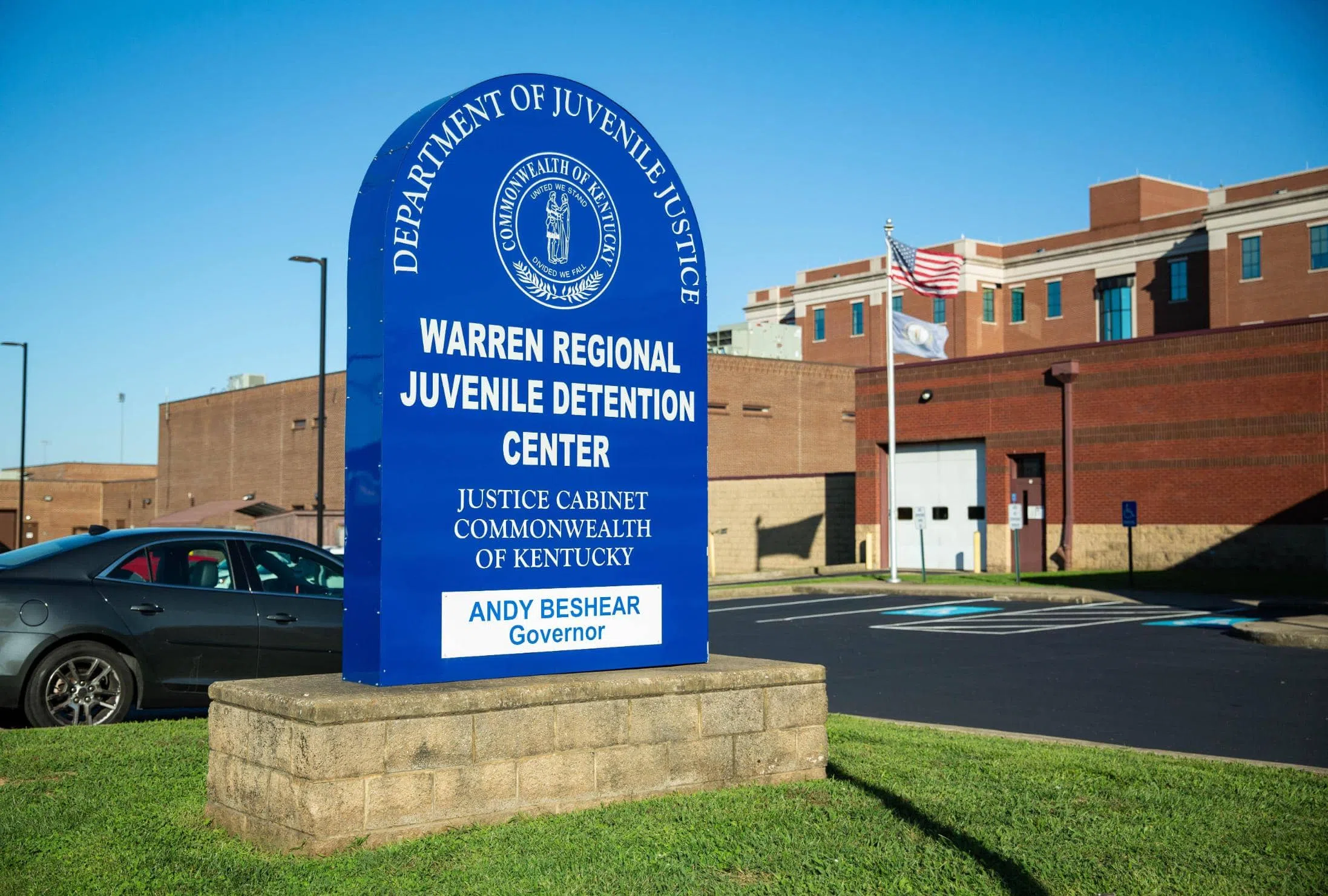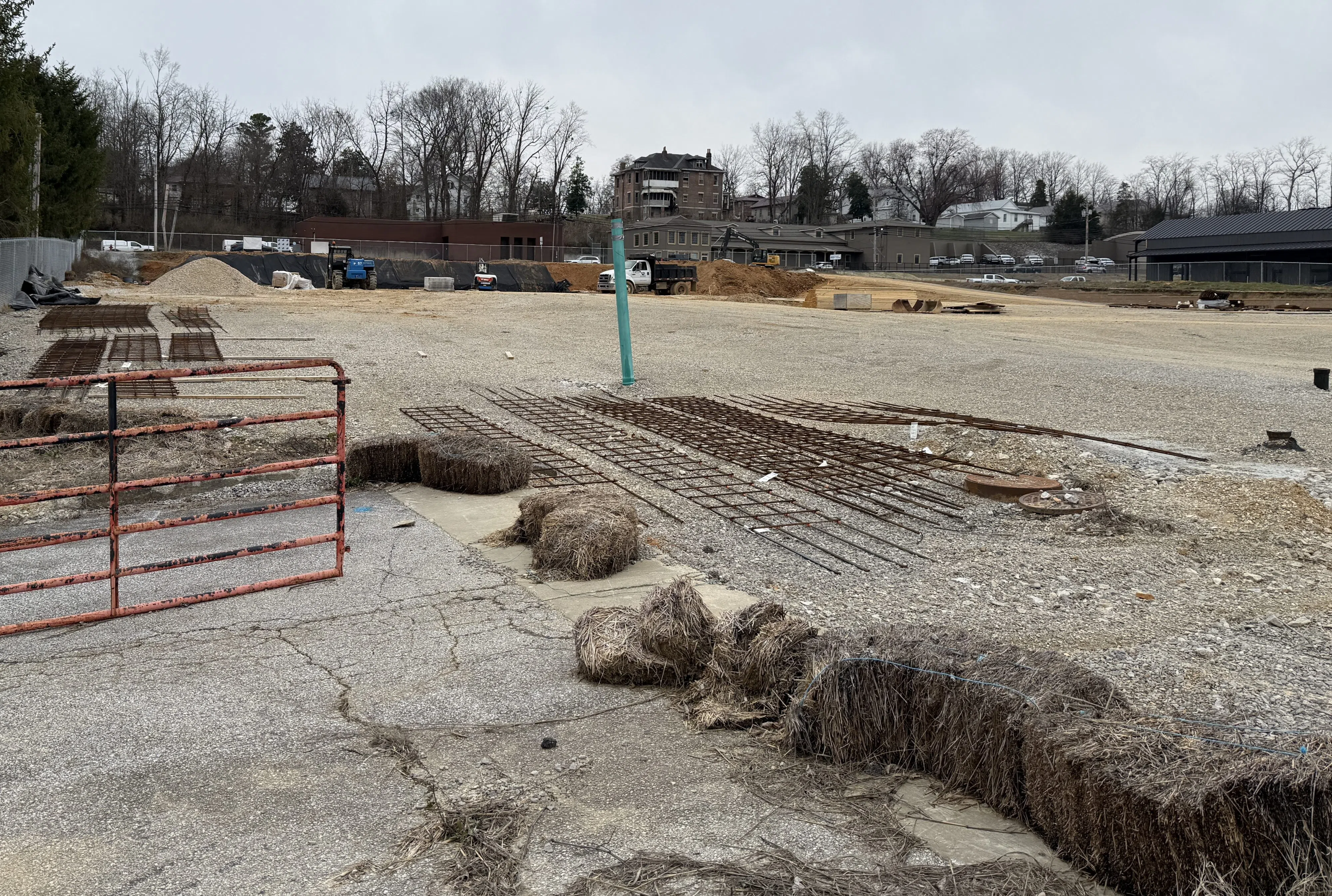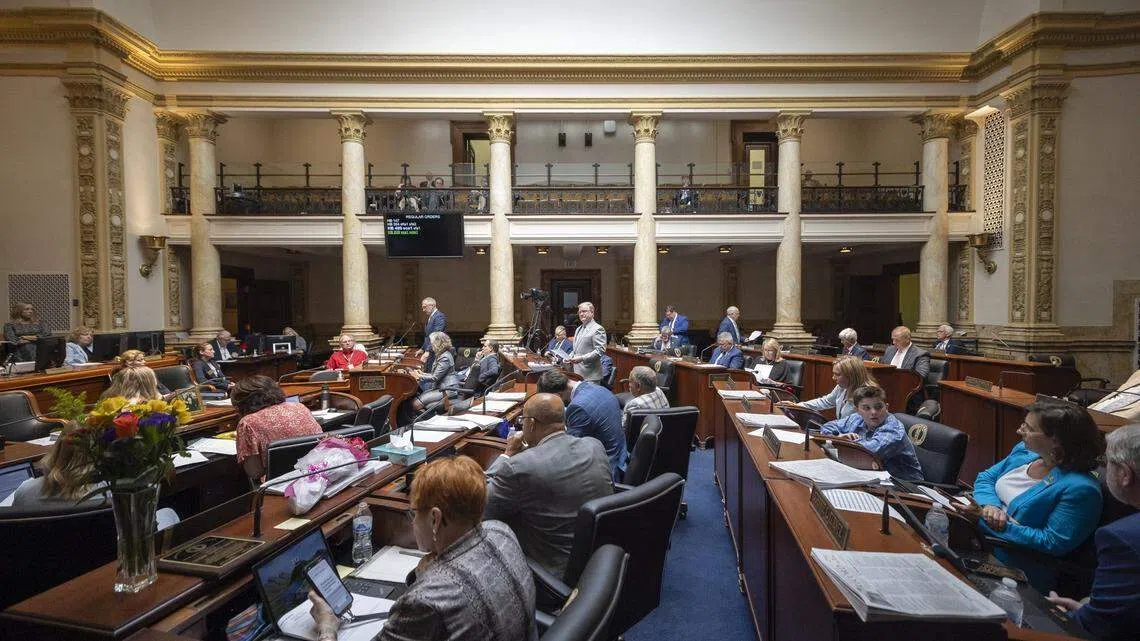The Warren Regional Juvenile Detention Center in Bowling Green, Ky., photographed Sept. 6, 2021.
(GRACE RAMEY/BOWLING GREEN DAILY NEWS VIA AP STORYSHARE)
By BRUCE SCHREINER Associated Press
FRANKFORT, Ky. (AP) — Kentucky lawmakers on Wednesday advanced the first phase of proposed legislation to end unrest in a statewide juvenile detention system that is struggling after a rash of violence.
The House Judiciary Committee approved a bill aimed at reopening a youth detention center in Louisville and changing policies for juveniles charged with violent offenses. It would require such youths to be held for up to 48 hours, pending a detention hearing before a judge.
The action comes as lawmakers put their stamp on policies meant to defuse risks of violence in youth detention centers. The juvenile justice system has struggled to house increasing numbers of youths accused of violent offenses. The result has been a string of assaults, riots and escapes.
The goal is to enhance community safety while steering youth offenders onto the right path through education, mental health or substance abuse programs, said Republican Rep. Jason Nemes. Louisville, the state’s largest city, has been hit by a rise in violent juvenile crime.
“We are trying to thread the needle,” Nemes said during the committee hearing. “We have got to save our kids, our communities, our families.”
Republican Rep. Kevin Bratcher, lead sponsor of the bill, said another measure is expected to deal with internal problems within the state Department of Juvenile Justice.
Bratcher’s bill also is aimed at ensuring parental involvement. Under his proposal, parents of a charged juvenile would have to appear before a judge if they’re not cooperating with their child’s diversion program, with the potential for criminal penalties.
Bratcher’s bill also would appropriate $8.9 million to retrofit and reopen a juvenile detention center in Louisville. Many detained Louisville youths are now sent to a detention facility in rural Adair County, about 100 miles (160 kilometers) south of Louisville.
Critics of the measure said its priorities are misplaced, questioning whether it would achieve the objectives sought.
“We have created poor systems that are operating poorly. Doing more of the same is unlikely to give us different results,” said the Rev. Kent Gilbert of the Kentucky Council of Churches.
The committee action came a day after John Hicks, the governor’s executive cabinet secretary, presented funding requests totaling about $45 million over the next two years — much of it to shore up staffing and safety in the juvenile detention system.
Meanwhile, Democratic state Reps. Keturah Herron and Lisa Willner touted legislation Wednesday aimed at reducing the need to detain youths and guaranteeing critical services for those under state supervision. Republicans have supermajorities in the Kentucky legislature.
“We have an opportunity this legislative session to make a real and lasting difference when it comes to juvenile justice,” Willner said. “We cannot let this governing-by-crisis continue.”
The back-and-forth discussions come as the juvenile justice system tries to overcome recent outbreaks of violence. A riot broke out last year at a detention center, leaving several young people and staff wounded. Order was restored after state police and other law enforcement officers entered the facility. More recently, three juveniles kicked and punched staff during an attack at another center.
Democratic Gov. Andy Beshear responded with a series of policy changes to try to quell the violence. He announced that male juveniles would be assigned to facilities based on the severity of their offenses. Three high-security juvenile detention centers were designated to house teenage male offenders charged with serious crimes. The governor ordered the opening of the state’s first female-only juvenile detention center.
In other actions, the governor increased starting pay for detention center staff and said “defensive equipment” — pepper spray and Tasers — will be provided for the first time so detention center workers can defend themselves and others if attacked.














